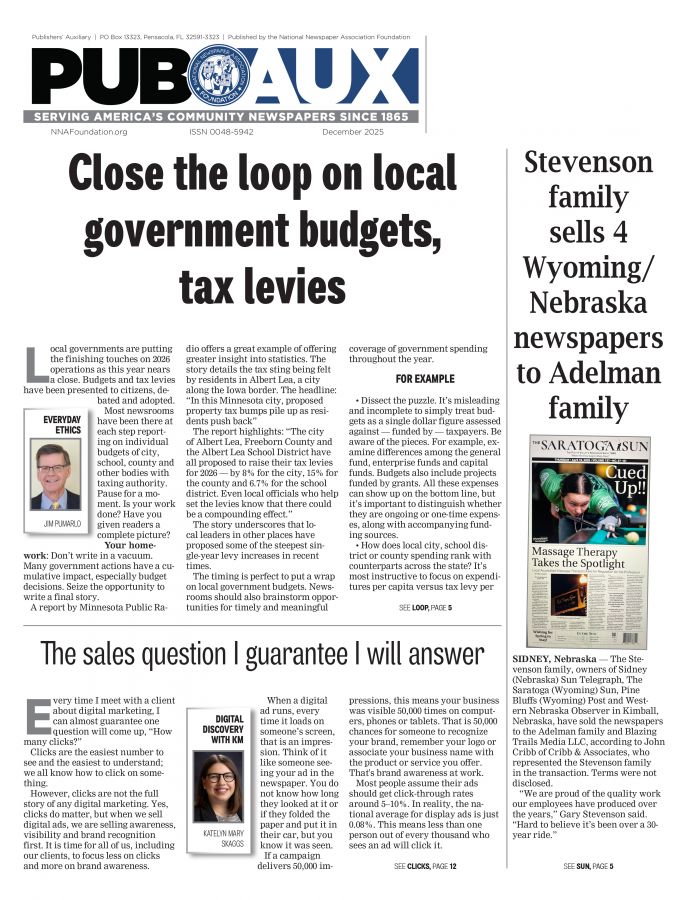Can an employee volunteer to work without pay?
By Tonda F. Rush
CEO & General Counsel | NNA
Q
One of our reporters has a hard time staying within a 40-hour work week. Frankly, he wants to get the story, regardless of how much time he puts in. But our budget does not allow for overtime. So, can he volunteer his time, and if not, I hear we can have a “Belo” exception that helps us stay on budget.
A
The proposal by the U.S. Department of Labor to radically change the way workers are classified as exempt or non-exempt under the Fair Labor Standards Act has caused a lot of newspaper management people to look at their current practices. It is a complex topic, and probably about to be made more so if the rules change. But let’s look at today’s rules. And also, be mindful that many states have their own rules that are even stricter for employers, so it is important to check both federal and state rules from time to time.
If an employee is not exempt from the Fair Labor Standards Act that requires payment of overtime for a workweek that exceeds 40 hours, the employer owes the worker time-and-a-half in compensation for every extra hour worked. There are many misunderstandings about this rule, and indeed, responses to the National Newspaper Association’s recent member survey on the wage rules confirm that there is confusion. Here are some tips:
1. Paying someone a fixed sum as a salary is not enough to qualify the person as exempt. Conversely, paying an hourly rate is not necessarily required for non-exempt—it is just the easiest to administer. Any system that gets to a 150 percent pay rate for weekly hours over 40 is OK under federal rules.
2. To be exempt, the worker has to earn more than $23,660 a year and fit under one of several categories of duties for administrative, creative, professional or other categories. Although there are many newspaper employees who may be exempt, most reporters at community newspapers are not. The industry used to consider them professional employees, but in various federal court rulings, DOL has been allowed to classify them as non-exempt, and therefore not professionals under the rules.
3. A worker may not “volunteer” time after 40 hours. If work is done, it must be compensated.
4. An employer may arrange in advance for a set number of overtime hours to be worked and pay a flat salary under an exception from a 1942 Supreme Court case involving the Belo Corp. An agreement between employer and employee would involve setting a base rate in excess of minimum wage to cover the 40 hours and then adding in a set number of overtime hours at 150 percent of that base rate. But the Belo exception is allowed only for jobs where irregular hours are essential and cannot be controlled by the employer. Only if many workweeks go fewer than 40 hours, as well as more than 40 hours, can the employer use the Belo exception.
5. There is an exception for outside salespeople. But personnel who spend most of the day in the office on the phone and only venture out from time to time are not eligible for it.
The FLSA rules trip up a lot of small business employers. If the DOL proposal goes into effect, there will be even more traps laid for the unwary, because the annual earnings to qualify for exempt will more than double to about $50,000.






